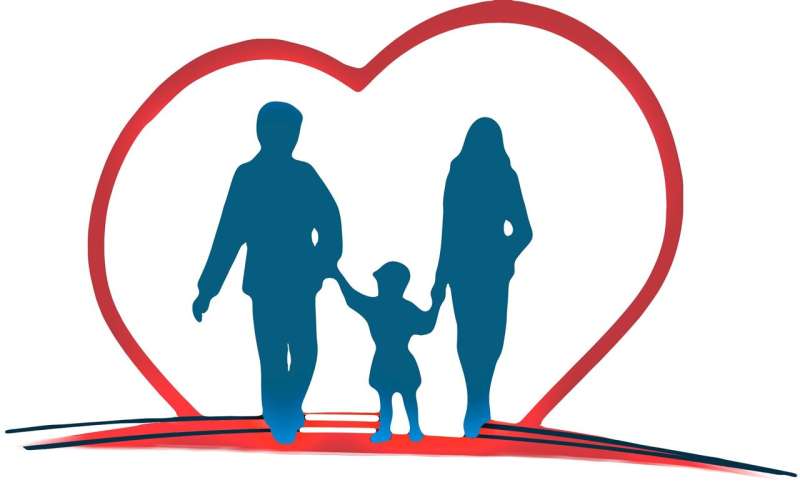This article has been reviewed according to Science X's editorial process and policies. Editors have highlighted the following attributes while ensuring the content's credibility:
fact-checked
trusted source
proofread
Spanish-speakers seeking medical care for relatives with Down syndrome encounter language barriers, racism

Spanish-speaking families often experience significant challenges in receiving quality medical care for a loved one with Down syndrome (DS).
New research published in the American Journal of Medical Genetics Part A found that many caregivers and primary care providers felt that language differences and a lack of quality Spanish-language health information on DS contributed to potentially compromised care, especially when on-site interpreters were not available. Families also described condescending and discriminatory treatment within the medical system, leading to caregiver stress and social isolation.
"The underlying cultural and structural racism these families experience further undermines their fragile trust in health providers and the health care system," says senior author Brian Skotko, MD, MPP, the Emma Campbell Endowed Chair on Down Syndrome at Massachusetts General Hospital and associate professor of Pediatrics at Harvard Medical School. "Families may also feel isolated from Down syndrome organizations and unwelcomed at support groups that cater primarily to English-speaking white families."
The investigators collected data from Spanish-speaking caregivers of 41 people with DS through a national survey, two focus groups with seven family caregivers, and interviews with 20 primary care providers who care for patients with DS who are underrepresented minorities.
The study was part of a larger research effort to identify health care disparities among underrepresented minorities in the DS community. A previously published paper by the same research team examined the experiences of caregivers who are Black, African American, of African descent, or mixed race.
"Our studies were the first to apply rigorous scientific methods to analyzing health care experiences of minorities who have a loved one with Down syndrome," says Skotko.
The study is also unique because the co-authors included parents of children with DS. "The research was done in collaboration with the community we're trying to serve, which significantly informed and enhanced our methods and was a profound departure from traditional research conducted solely by academic medical doctors," Skotko adds.
Although caregivers reported that medical providers were the most trusted source of credible information about DS, more than half worried that their loved one would not be treated with respect when referred for a diagnostic test or appointment. "There is an assumption that I am less educated and when I ask questions about the line of treatment or don't agree, I am not taken seriously," said one parent at a focus group.
Spanish-speaking parents also emphasized that how they received the initial diagnosis of DS was vital in establishing or damaging trust in medical providers.
"This is a moment that is remembered for a lifetime by all families, but Spanish-speaking parents can be distressed for years if the diagnosis is delivered in an insensitive way, without compassion, or is overly medical," says Skotko. "Our study participants expressed that all children are loved, regardless of disability, and they wanted their doctors to recognize the inner beauty of their loved one, rather than focusing solely on the diagnosis."
One parent said she was disheartened by the lack of confidence and hope she sought from the pediatrician. "Instead of encouraging me, (my pediatrician) made me feel afraid…So that made me feel intimidated," she said. Another parent, however, was relieved when the pediatrician said, "Those children are a blast. You are going to see that for you, it is going to be a blessing from God."
To facilitate trust, Skotko recommends that providers ask families what they know about Down syndrome and their feelings about the diagnosis, allowing them to lead the conversation. "This openness gives the clinician a better understanding of how to situate the diagnosis within the family's cultural framework and to engage families as partners," he says.
Families also said they wanted the medical community to acknowledge that raising a child with DS can sometimes be difficult. "Providers verbally appreciating how hard parents are working to care for their children goes a long way to validate and respect the burden and stress that comes with caregiving," Skotko adds.
Other strategies for improving care of the Spanish-speaking DS community will require greater change. The researchers advise expanding the availability of on-site interpreters who can seamlessly be integrated into clinic visits. Practices may also consider ways to offer flexible scheduling for patients who require more time, and to hire social workers who can help families navigate the myriad complex social and medical needs outside the office visit, such as communicating with schools about IEP plans and making appointments with specialists.
Many families said they would like their health care providers to be race- and ethnicity-concordant, which will require efforts and funding to recruit more people of diverse backgrounds into the medical profession, according to Skotko.
The research team has written the results of their studies in easy-to-understand language in Spanish and English for parents. Over the next year, they will be posting the results on social media channels and asking the community of parents to share their stories and experiences.
"We want to start a dialog around these data, not have it hidden away behind a firewall or in an academic medical library," says Skotko. They are also contacting every Down syndrome organization in the country and providing them with a toolkit to promote discussions among caregivers of diverse backgrounds. "Building trust within a broad community is essential to fully support the health of people with Down syndrome from Spanish-speaking families," says Skotko.
More information: Jeanhee Chung et al, Healthcare experiences of patients with Down syndrome from primarily Spanish‐speaking households, American Journal of Medical Genetics Part A (2023). DOI: 10.1002/ajmg.a.63250



















